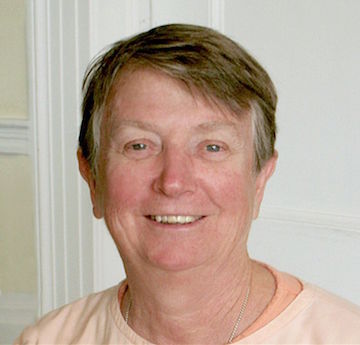by Swami Vimalananda
“It’s unfair!!!” “That’s not the way it should be.” We are completely attached to “should.”
How many times have we thought that our fathers or mothers should have treated us better? How much pain do we experience, no matter how old we are, feeling not looked after the way we felt we needed? Our employers, partners, relatives, neighbors, politicians, even strangers should be acting according to how we envision the world, the way it should be.
One of my aunts disinherited her son, an only child, because my aunt felt that her son expected too much of her. She thought he expected her to always be available to take care of his children, be generous financially and always be open to their visits. When she died my cousin was devastated when the will was read. He still lives his life with anger and grief over his mother’s action.
I always had resentment towards my father for being aloof and spending most of the time in the garage when he wasn’t working at his job. Many times for me to ask him something I would go to the garage, bend down so I could see him under a car or I would find him under a hood. Sometimes he would ask me to get him a certain wrench or some other tool as he continued to work so our conversation would intermittently be interspersed with, “Please hand me a 3/4 inch wrench.”
I spent every summer with my father in Los Angeles, and one summer I was returning home to my mother. I got off the bus in San Francisco, and no one was there to greet me. I waited around, then phoned many times, and no one answered. I finally took a streetcar and when I got home, a friend was there and said he slept through the phone calls. It happened that my mother received an invitation to go away for the weekend so she took it and asked our friend to pick me up. I completely felt she should have been there; even after all these years I still can feel in my weaker moments that if she loved me, she would have been there.
My sister gave birth to her son in Fort Riley, Kansas, where her husband was stationed in the army. My mother didn’t go to the birth, nor right after to take care of my sister. I held a resentment for many years, convinced my sister needed her and my mother didn’t go to help. I was visiting my sister many years later and remembering my feelings, I told her how I resented our mother for not looking after her. There was a long silence, then my sister told me she didn’t want our mother to come, she wouldn’t know what to do with her if she did come, and she had plenty of help from fellow soldiers’ wives. I must have carried that resentment for forty years. I had an attachment to how I thought it should be and how I thought it should be different.
And marriage was one of my biggest “shoulds.” When we first fall in love, there are no boundaries to our love. The love of my life, we loved each other unconditionally. I remember very clearly that I thought my husband possessed everything I ever needed. As time went on and I didn’t receive what I thought should have been a fountain of unconditional love with great affection, I said to him, “I feel I am starving in the land of abundance.” It didn’t occur to me that it was not there to give, nor that maybe I was complete without needing his continuous affection. That my dependency was actually making him feel the need to close off, trying to take more than he had to give.
Of course we also feel we should take better care of ourselves, be kinder, be a better citizen, react differently than we did to some situations, be more mature, smarter, socially gifted, and never angry.
It creates feelings of inferiority, sadness, loneliness, anger, resentment, and more but the major problem is the feeling of powerlessness— being a victim. It is like looking out through blinders and as Sri Gurudev would say, “with a jaundiced eye everything looks yellow until we cure the ailment.”
Judging others as a measurement of our own feelings of inferiority: I’m better than he is, or less than. Every interaction can be viewed from this stance, everything from daily interactions, to anyone being “different.” It takes the form of elitism, racism, sexism, in fact all prejudices. And as I like to say, throwing out the baby and keeping the bath water, not knowing what really is — judging everything from a jaundiced eye.
I can say looking back, after many years, I truly know the man that was my husband and who I thought he was, were two separate people. My delusion based on my desires completely blinded me. I felt I could only be complete if he loved me in the manner that I thought he should. It didn’t occur to me that I embodied completeness and that I am free—free from needing other people’s approval and love, in all shapes and sizes, for I embody love. With this understanding I can accept him and everyone just the way they are.
I remember when my youngest daughter and I were in line at her elementary school to buy ice cream and a boy cut in line ahead of us, I immediately was going to tell him to get in the back of the line, but my daughter looked at me and said, “Mom, I really don’t care if he got ahead of us.” I really saw at that moment my daughter had it more together than I did.
Being free means not needing to see the world in a certain way, dependent on it to respond in a way that we need for our feelings of security; it’s the ability to see the world separate from personal desires. I don’t need a set of opinions to protect me which is just a way to feel secure in the world. It can be seeing the world through a non-biased lens. Sri Gurudev said that his favorite newscaster’s closing was, “And that’s the way it is….” Our security and selfhood are not contingent on the outside world. Then as Fred Rogers stated, “I love you just the way you are.” True love and selfish desires are incompatible. Loving without expectations is love; everything else, Sri Gurudev stated, is “business.”
The only way to love without expectations is to know that we are already complete, and we can touch the source and live in the source of true love. It is available to us but only with the ability to calm our minds, and not get caught up in our thoughts and all our expectations and desires. As is stated in The Yoga Sutras of Sri Patanjali, we must practice stilling the mind for a long time, without break and in all earnestness. We have to put in the effort. Then as we develop discriminative discernment we can let go of our attachments, knowing that they are really just delusions. Instead, the way to happiness is acknowledging that desires and attachments are really hindrances. The path to love and completeness is clear and straightforward, we just have to put in the work.
The Mind Of Absolute Trust
by Seng-Ts’an
The Great Way isn’t difficult
for those who are unattached to their preferences.
Let go of longing and aversion,
and everything will be perfectly clear.
When you cling to a hairbreadth of distinction,
heaven and earth are set apart.
If you want to realize the truth,
don’t be for or against.
The struggle between good and evil
is the primal disease of the mind.
Not grasping the deeper meaning,
you just trouble your mind’s serenity
and as vast as infinite space,
it is perfect and lacks nothing.
But because you select and reject,
you can’t perceive its true nature.
Don’t get entangled in the world,
don’t lose yourself to emptiness.
Be at peace in the oneness of things,
and all errors will disappear by themselves.
If you don’t live in the Tao,
you fall into assertion or denial.
Asserting that the world is real,
you are blind to its deeper reality:
denying that the world is real,
you are blind to the selflessness of all things.
The more you think about these matters,
the farther you are from the truth.
Step aside from all thinking,
and there is nowhere you can’t go.
Returning to the root, you find the meaning;
chasing appearances, you lose their source.
At the moment of profound insight,
you transcend both appearance and emptiness.
Don’t keep searching for the truth;
just let go of your opinions.
 Swami Vimalananda Ma, RYT500, is an Integral Yoga sannyasi – monk. She has been involved with Integral Yoga since 1971 and Director of the San Francisco Integral Yoga Institute from 1992-2011. She specializes in teaching yoga philosophy and spiritual counseling.
Swami Vimalananda Ma, RYT500, is an Integral Yoga sannyasi – monk. She has been involved with Integral Yoga since 1971 and Director of the San Francisco Integral Yoga Institute from 1992-2011. She specializes in teaching yoga philosophy and spiritual counseling.

